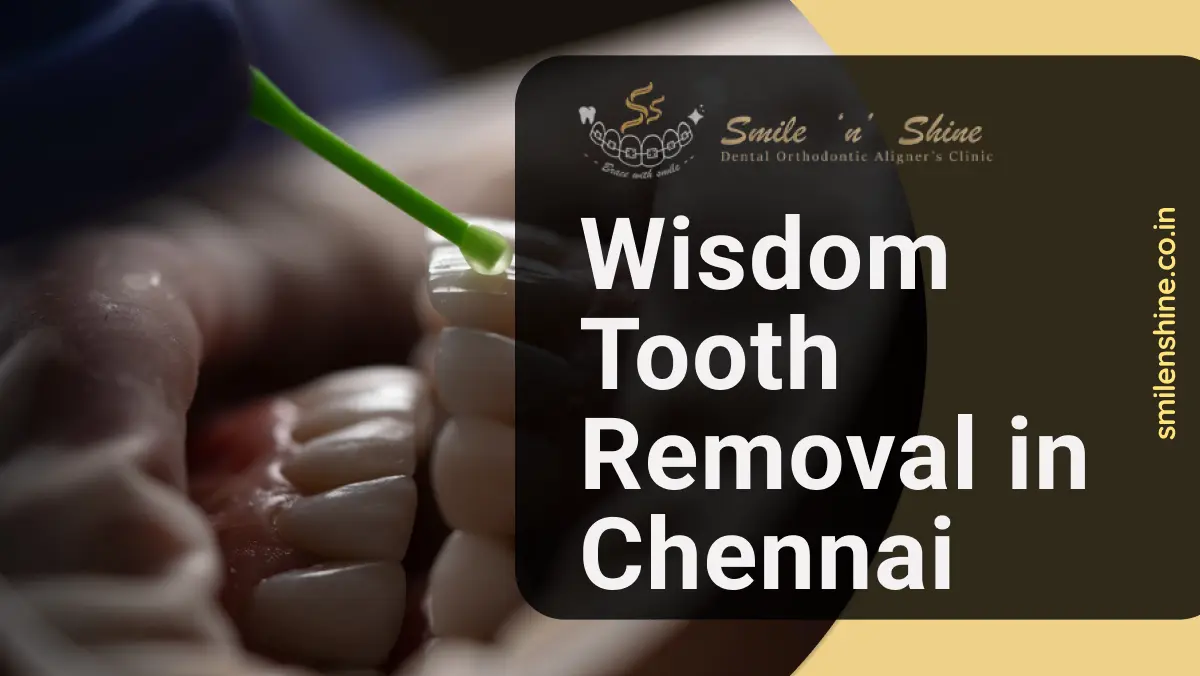Wisdom teeth, also known as third molars, are the last set of teeth to emerge in the back corners of the mouth. However, these teeth often pose problems due to various factors such as insufficient space in the jaw, improper alignment, or impaction.
In such cases, the dentist or oral surgeon may recommend wisdom tooth removal. This procedure involves extracting one or more wisdom teeth to alleviate discomfort, prevent dental issues, and maintain overall oral health.
Signs and Symptoms
Several signs and symptoms may indicate the need for wisdom tooth removal. These include:
- Pain and Discomfort: Wisdom teeth can cause pain, especially when they are impacted or erupting at an angle.
- Swelling and Redness: Inflammation around the wisdom tooth site can indicate infection or an impacted tooth.
- Gum Infection: Partially erupted wisdom teeth can trap food and bacteria, leading to gum infections like pericoronitis.
- Dental Crowding: The eruption of wisdom teeth can exert pressure on neighboring teeth, causing misalignment or overcrowding.
- Tooth Decay: Wisdom teeth are challenging to clean properly, making them more susceptible to cavities and decay.

Treatment Procedure
Before the Procedure
Before wisdom tooth removal, your dentist or oral surgeon will conduct a thorough examination of your mouth, including dental X-rays, to evaluate the position of the wisdom teeth and determine the best course of action. They will discuss the procedure with you, answer any questions you may have like tooth removal cost in Chennai, and provide instructions for pre-operative care.
During this stage, it is essential to inform your dentist about any medications you are currently taking, as well as any existing medical conditions or allergies you have, to ensure a safe and successful procedure.
During the Procedure
The surgical process of wisdom tooth removal typically involves the following steps:
- Incision and Tissue Removal: The dentist or oral surgeon will make an incision in the gum tissue to expose the tooth and underlying bone.
- Tooth and Bone Removal: The tooth may be extracted in one piece or divided into smaller sections for easier removal. If necessary, the surrounding bone may also be trimmed or removed.
- Stitching: Once the tooth is removed, the surgical site is cleaned, and stitches may be used to close the incision.
- Gauze Placement: Gauze pads are placed over the extraction site to control bleeding and promote clot formation.
Post-Operative Care
After wisdom tooth removal, it is crucial to follow post-operative care instructions to ensure a smooth recovery. These may include:
- Rest and Recovery: Take it easy for a few days, avoiding strenuous activities that could disrupt the healing process.
- Pain Management: Take prescribed pain medications as directed or use over-the-counter pain relievers to manage discomfort.
- Swelling Reduction: Apply cold compresses to the cheeks in the first 24 hours to minimize swelling.
- Soft Diet: Stick to soft, easily chewable foods and avoid hard, crunchy, or spicy foods that could irritate the surgical site.
- Oral Hygiene: Maintain oral hygiene by gently rinsing your mouth with warm saltwater and avoiding rigorous brushing around the extraction site.
Benefits of Wisdom Tooth Removal:
- Pain Relief: Removing painful or impacted wisdom teeth can alleviate discomfort.
- Prevention of Dental Issues: Wisdom teeth can contribute to tooth decay, gum disease, and infections. Extraction can prevent these problems.
- Prevention of Misalignment: Wisdom teeth can exert pressure on neighboring teeth, causing misalignment at an affordable tooth removal cost in Chennai.
- Improved Oral Hygiene: Wisdom teeth are difficult to clean properly, increasing the risk of cavities and gum disease.
Risks and Complications of Wisdom Tooth Removal:
- Surgical Risks: Bleeding, infection, tissue damage, and anesthesia-related complications are possible surgical risks.
- Dry Socket: The blood clot that forms after extraction may dislodge, leading to pain and delayed healing.
- Nerve Damage: Nerves in the jaw may be injured during extraction, resulting in numbness or altered sensation.
- Sinus Problems: Extraction of upper wisdom teeth can occasionally cause sinus-related issues.
- Rare Complications: Infection, excessive bleeding, and other rare complications may occur.
It’s important to discuss the specific benefits and risks of wisdom tooth removal with your dentist or oral surgeon, as individual circumstances may vary.
Strategies for Comfort after Wisdom Tooth Removal
To manage pain and swelling after wisdom tooth removal, you can consider the following strategies:
- Take prescribed pain medication or over-the-counter analgesics as directed by your dentist or oral surgeon.
- Apply cold compresses to the outside of your face in the first 24 hours to reduce swelling and numb the area.
- Prop your head up with pillows while resting to help reduce swelling.
- Avoid foods and drinks that are too hot, spicy, or acidic, as they can aggravate the surgical site.
- Rinse your mouth gently with warm salt water after meals to keep the area clean.
- Continue brushing your teeth, but avoid brushing the surgical site for the first few days. Be cautious and gentle when brushing around the extraction area afterward.
- Refrain from using mouthwash during the initial healing phase, as it may interfere with blood clot formation.
- Schedule follow-up visits with your dentist or oral surgeon to monitor the healing process and ensure there are no complications.
Conclusion
To conclude, wisdom tooth removal is a routine procedure that can help alleviate pain and prevent further oral health complications. While everyone’s healing process and tooth removal cost in Chennai may differ slightly, patience and proper self-care will contribute to a quicker and more comfortable recovery. Consult with your dentist or oral surgeon for personalized advice and guidance throughout the process.



